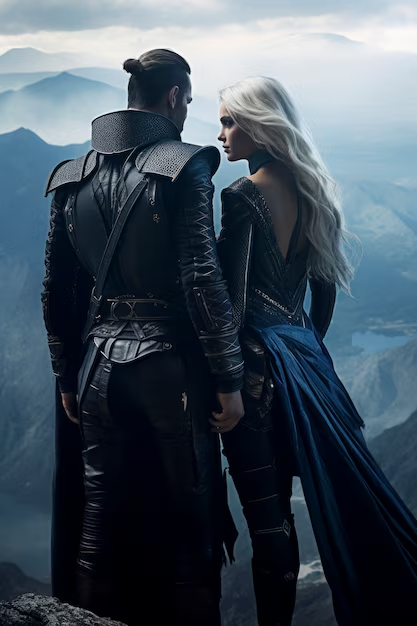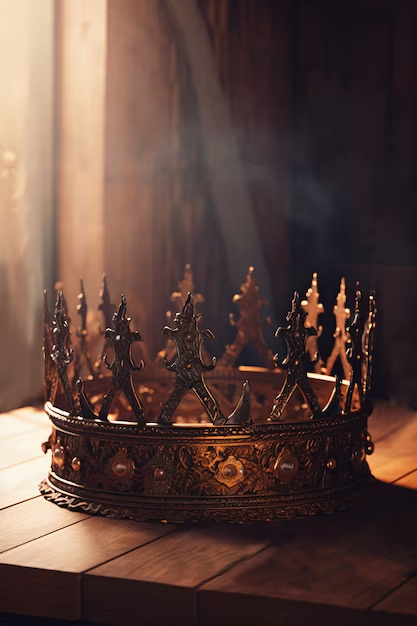


Although relationships are frequently likened to different topics, events, or narratives, a distinctive and dramatic perspective can be obtained by comparing them to Game of Thrones. In addition to telling the story of power struggles and politics in the Middle Ages, Game of Thrones depicts a complex web of relationships that, though on an epic, exaggerated scale, mirror real-world interactions. Let’s explore the ways in which Game of Thrones personalities and storylines are paralleled by relationships, be they platonic, familial, or romantic.
1. Power Dynamics and Control
In Game of Thrones, power is central to every relationship. Whether it’s a political alliance or a romantic entanglement, control and influence play a significant role. This mirrors real-life relationships, where power imbalances can exist and influence the course of events. For example, in some partnerships, one person might dominate decision-making, subtly or overtly controlling the narrative.
In the show, we see this power struggle in relationships like that between Daenerys Targaryen and Daario Naharis or Cersei Lannister and Jaime Lannister. Daenerys, driven by her goal to reclaim the Iron Throne, often puts power before emotional vulnerability. Similarly, some people in real relationships may prioritize ambition or self-interest over emotional connection, leading to a tug of war for control.
2. Betrayal and Loyalty
Betrayal is a recurring theme in Game of Thrones, but it’s also a reality in many relationships. Trust is foundational, but when broken, it can cause immense emotional damage. Characters like Jon Snow and Ygritte or Robb Stark and Talisa show us that love can be betrayed by external forces, personal ambition, or conflicting loyalties.
In real relationships, whether romantic or familial, betrayal may not always involve wars or swords but lies, infidelity, or manipulation. These moments challenge trust and loyalty, often leading to heartbreak and disappointment. The complexity of betrayal is highlighted when partners or friends have to navigate their loyalties, as we see with characters like Tyrion Lannister, who is often caught between loyalty to his family and his personal morals.
3. Realism vs. Romantic Idealism
A variety of romantic relationships are depicted in Game of Thrones, from idealized, fairytale-like romances to grim, realistic realities. Relationships between Jon Snow and Daenerys Targaryen, for example, start off intensely passionate but end tragically because of opposing beliefs and objectives. This contrast draws attention to a crucial reality about relationships: not every one of them will endure, and not every love tale will have a happy conclusion.
In real life, people frequently go into relationships with romanticized ideas only to learn later on that it takes work, compromise, and the capacity to work through disagreements in order to keep love alive. The idealism of love, in which everything seems ideal, frequently wanes and exposes the more difficult aspects of combining two lives. Romantic fantasies are frequently dashed by reality, just like in the drama.
4. Family Ties and Expectations
One of the central themes of Game of Thrones is the influence of family. Characters like Sansa Stark or Tyrion Lannister are constantly influenced by the weight of family expectations, duty, and legacy. In real relationships, family also plays a major role. Whether it’s expectations from parents, cultural traditions, or simply the pressures of maintaining family bonds, the family can be both a source of strength and conflict.
In the show, Ned Stark’s unwavering sense of honor and duty to his family is admirable but also leads to his downfall, showing how familial expectations can sometimes clash with personal desires.
In summary, in Game of Thrones, relationships are a representation of the complex web of feelings, allegiances, and power struggles that characterize interpersonal relationships in real life. From passion and love to treachery and selflessness, the show highlights the intricacies we encounter in our relationships on a daily basis.
We must navigate the fluctuating tides of our emotions, aspirations, and outside forces, just like the characters in Game of Thrones. But unlike the many terrible endings in Westeros, relationships in real life flourish when they are built on mutual respect, trust, and communication. Even as we relish the dramatic swings and turns of fictional worlds, an understanding of the careful balance between these elements can help us create enduring, healthy connections in our own lives.
